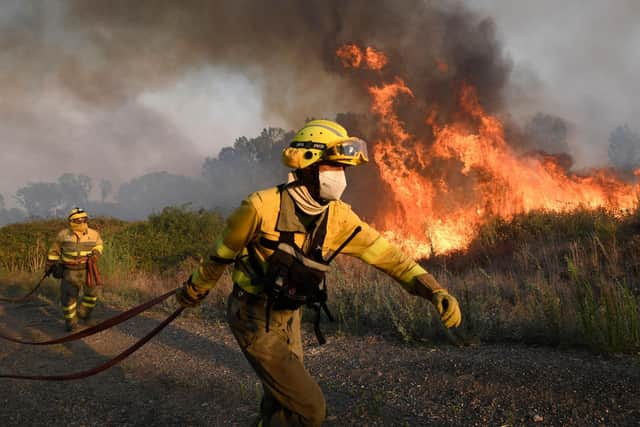Why the UK heatwave proves way of life must change
A total of 46 measuring stations across the nation saw temperatures exceeding the previous UK record high of 38.7C, set in Cambridge in 2019.
And not only were daytime temperatures the highest ever documented, new all-time peaks for overnight warmth were also recorded.
Advertisement
Hide AdAdvertisement
Hide AdRail tracks buckled, power lines sagged, tar melted and wildfires broke out, and large parts of the country ground to a halt.
People were warned to stay at home or take refuge in air-conditioned buildings to avoid dangerous health impacts, although many flocked to beaches and loch-sides in an bid to cool down.
The recent heatwave is the most extreme to have hit the UK – more intense than the legendary 1976 event.
Meanwhile, other parts of Europe and the US were also experiencing deadly heat, with the likes of Portugal frying amid temperatures reaching 47C.
Weather records show the ten hottest years since 1884 have all come since 2002.


Overall, the UK has got nearly 1C hotter in the past 30 years.
Forecasters say summers like this one will become increasingly frequent and with longer-lasting hot spells as the world continues to warm up.
The Met Office, which issued a red “danger to life” warning for heat for the first time ever, described the heatwave as “unprecedented in the context of long term climate records”.
Advertisement
Hide AdAdvertisement
Hide AdFlooding and other extreme weather events will also become more common as a result of warming.
All of this serves as a reminder, if any were needed, that our way of life needs to change.
It’s not just about actions to drastically cut emissions, we also need to modify buildings and other infrastructure to take account of the ‘new normal’ we are already beginning to experience.
This includes adapting the way we heat and cool homes, workplaces and hospitals, creating greener cityscapes to provide shade and disperse warmth and building roads, railways, power grids and even computers that can withstand scorching temperatures
We will also need to improve protection against flooding, safeguard water supplies and carefully choose the crops and plants we grow.
Comments
Want to join the conversation? Please or to comment on this article.